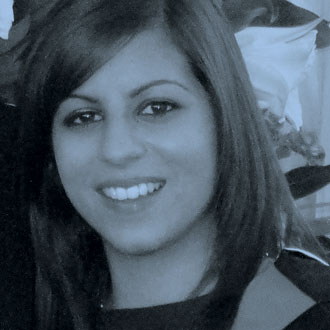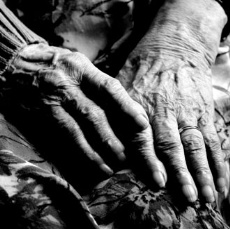‘Let me show you something, doctor’


I rang the bell. Trying to stop the oversized practice doctor’s bag from falling off my shoulder, I waited, swallowing nervously. A vivid memory of myself aged 10 fancifully playing doctor with my Fisher-Price medical kit suddenly flashed before me. It was hard to shake the feeling that some resemblance remained.
It was my first home visit as a GP trainee. I’d been in the job for three months. The 92-year-old’s son had called with worries about his mother’s rapid weight loss. He now doubted her capacity to decide to see a doctor or not: she resolutely refused to come to the surgery.
Several minutes passed, and I started to get a niggling worry that she had looked through the keyhole and suspected I was a local Girl Guide. To my relief, the door finally creaked open. A pair of bright blue eyes peered at me from a smiling, wrinkled face, like marbles pushed into dough. Her slender, fragile frame clutched at the doorway for support. I followed her as she shuffled slowly into the kitchen, guiding herself by sweeping over the furniture with her nobbled fingers.
‘I didn’t want to trouble anyone, doctor.’
She told me the story of her weight loss and diarrhoea, and I soon realised that her capacity wasn’t in question. I sat across from her at the kitchen table, with a sudden awareness of the years that separated her pre-NHS world from mine. When she was my age, healthcare had been a luxury.
She invited me into the bedroom to examine her. A stream of friendly eyes smiled at me from a wall of faded photographs as I passed. I’d stepped into a scene that followed a lifetime’s reel of memories.
Other writing competition entries
(2nd place) Dr Ellie Cannon: ‘Why hold back the tears?’
(3rd place) Dr Roger Henderson: ‘A presumptive diagnosis’
(Under-35s winner) Dr Ahmed Rashid: ‘The famous razor of Occam’
My hand gently outlined the unmistakable mass in her abdomen, as nobbled as the fingers that held mine as I did so. My mouth felt dry. I felt her eyes on me, and imagined them imploring me to chase death from the room as it inched closer. I couldn’t meet them.
Back around the kitchen table, I tried to find the words to explain what I’d found. I was suddenly struck by the weight of my responsibility. That toy medical kit was long gone. It was 17 years later, I was her doctor – and I wasn’t sure what I could do to help.
‘I just want to be able to eat properly again,’ she said.
That was all she longed for. After a long discussion, we agreed that I would arrange for the dietician and palliative care team to visit to start with. As I rose to leave, I looked down to find her hand on my arm.
‘Let me show you something, doctor.’
She led me into the drawing room. My eyes widened at the sight of a magnificent, shiny grand piano that spanned the width from wall to wall. Before I knew it, the room was filled with a sound so utterly beautiful, I caught my breath. Her arthritic fingers somehow flew over the keys. Eyes closed, she was lost in the melancholy music, transported back to scenes from another act in the play.
My eyes prickled. My patient had spent her life as a pianist travelling the world. That day she had willingly invited me into her present and, for a few minutes, even to glimpse at her past. And I knew I’d be with her now as we stepped into her future, whatever it might hold.
At that moment, it had never felt more real to me: being a GP truly is a privilege.
Dr Nishma Manek is a GP trainee in London. She receives a Kindle Fire HD for her winning entry.
<<< More from Pulse’s Writing Competition 2015
Pulse July survey
Take our July 2025 survey to potentially win £1.000 worth of tokens












